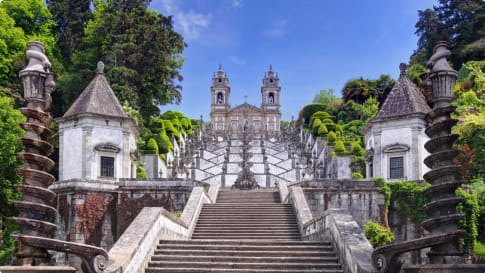Destination: Portugal

Portugal tours for seniors
Embark on a journey with Odyssey’s tailored small group tours, specially crafted for senior couples and mature solo travellers, offering a seamless and laid-back travel experience across Western Europe, including a captivating Portugal tour. Delve into Portugal’s rich tapestry of natural wonders, its imperial past, exploration heritage, UNESCO World Heritage Sites, and charming historic cities. Witness the breathtaking beauty of the Sintra mountain range, lush olive groves, and medieval towns nestled along the rugged coastline as you traverse the length of the Iberian Peninsula, encompassing the charms of Southern Portugal.
Join us for an enriching exploration led by a seasoned tour director and supported by knowledgeable local guides, ensuring a personalized journey for a maximum of 14 like-minded individuals. Immerse yourself in the allure of Portugal as you uncover hidden gems and cultural treasures, all meticulously curated for senior travellers seeking an unforgettable experience. Unveil the beauty of Portugal on an Odyssey small group tour, where every step is a new discovery and every moment is tailored to create lasting memories during your 2024 or 2025 Portugal vacation.
Continues below
Portugal Tours
Tours for Mature Aged and Senior World Travellers
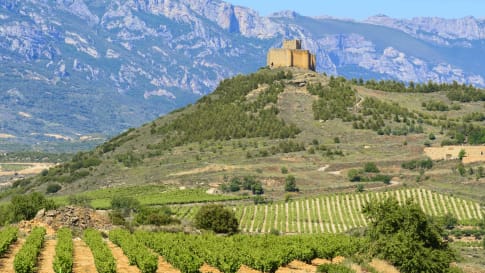
24 days
Oct, MarSmall Group Guided Tours of Spain and Portugal
Visiting Portugal, Spain
Our program explores the lands of Spain and Portugal, two countries bound by many centuries of history reflected in their modern cultures. Divided by history and language, contiguous neighbours Spain and Portugal were once host to gigantic empires that still bear their languages and lifestyles. A small group tour for couple and solo travellers.
From A$17,735 AUD
View Tour
19 days
Sep, Apr, OctSaint James Way Small Group Walking Tour (The Camino)- Spain
Visiting Portugal, Spain
Experience pleasant sections of the Way of Saint James, crossing some of Spain’s most beautiful landscapes. We follow the pilgrims on easy distances of The Way to the mythical destination, Santiago de Compostella. Not since the middle ages has this adventure for body and mind been more popular. We also get to discover the artistic highlights and rich history of Northern Spain and Portugal, as well as enjoying local wines and exquisite food.
From A$15,795 AUD
View Tour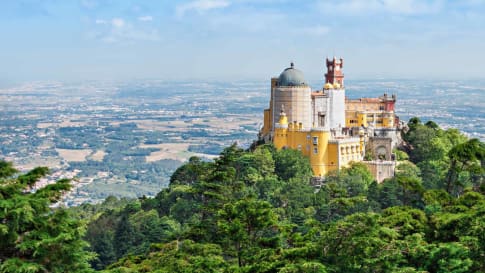
18 days
Aug, AprDiscover Portugal
Visiting Portugal
Join Odyssey Traveller small group journeys with like minded people on this immersive 18-day escorted tour of Portugal. This travel experience takes us from the capital of Lisbon, through Portugal's many historic cities and key UNESCO World heritage sites.
From A$12,435 AUD
View Tour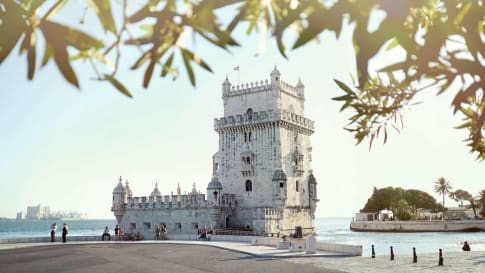
21 days
Jun, SepLisbon & Barcelona small group tour
Visiting Portugal, Spain
An escorted tour for like minded people that provides mature couples and solo travellers with daily itineraries that provide authentic experiences with qualified local guides in the great cities of Lisbon and Barcelona over 21 days. For solo travellers a nominal single supplement is charged.
From A$15,350 AUD
View Tour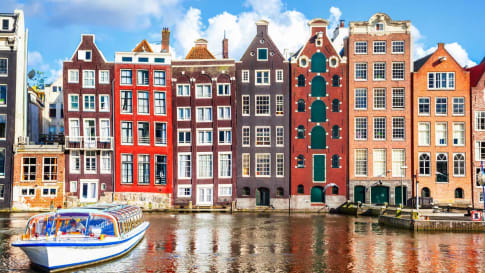
75 days
Apr, AugGrand tour of Europe
Visiting Austria, Belgium, Croatia
For the senior couple or mature solo traveler seeking a small group educational tour focussed on exploring and learning with like minded people in Europe.
From A$52,115 AUD
View Tour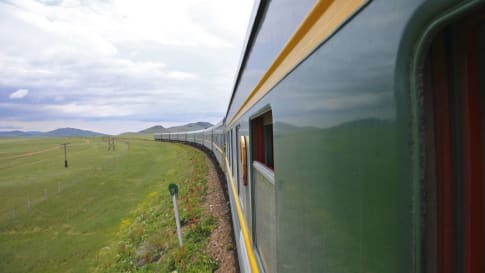
days
Mar, Jul, FebSingapore to Lisbon by train
Visiting China
A small group railway journey from Singapore to Lisbon. The longest in the world for senior couples and mature solo travellers. Explore over some 56 days, Singapore, Malaysia, Thailand, Cambodia, Vietnam, China, Mongolia, Russia, France, Spain and Portugal. Limited to 10 travelers on this escorted program.
Located on the western edge of the Iberian Peninsula, Portugal’s historical significance is undeniable. In the early modern period, it commanded the seas, leading the age of Portuguese exploration and establishing a vast empire spanning from Indonesia to Brazil. The resulting imperial prosperity is evident in the intricate Renaissance architecture found in cities like Braga, Sintra, and Lisbon. Embarking on a tour of Portugal unveils not only its cultural richness but also its historical grandeur, with stops in Nazare, Alfama, Mafra, Obidos and Evora.
Distinct in its legacy, Portugal gave rise to the Manueline style, named after King Manuel I, whose reign witnessed the nation’s unprecedented expansion and accumulation of wealth. This architectural style, unique to 16th-century Portugal, is characterized by elaborate ornamentation and maritime motifs, like intricate carvings of barnacles and nautical instruments adorning buildings along the cobblestone streets. The Jeronimos Monastery stands as a testament to this style, offering a glimpse into a bygone era on guided walking tours tailored for senior travelers.
While celebrating Portugal’s architectural opulence, it is crucial to acknowledge the darker aspects of its past. For two centuries, from 1440 to 1640, Portugal held a monopoly on the slave trade. In the 16th century, Lisbon boasted a significant African population, with around 10% of its inhabitants living in slavery, a sobering reminder of the complexities of history.
On tours designed for seniors in Portugal, a delicate balance is struck between exploration and education. Travelers are increasingly drawn to the captivating cities and breathtaking natural landscapes of Portugal, seeking a profound travel experience. Whether guided by a knowledgeable tour director or venturing out independently, visitors can immerse themselves in local history and savor the renowned seafood in quaint eateries. Indulging in Portuguese culinary delights, be sure to visit Fabrica dos Pasteis de Belem, a traditional bakery crafting delectable custard tarts since 1837.
Articles about Portugal

Mafra, Portugal
A forty-minute drive from Lisbon, you will find the town of Mafra near the west coast of Portugal. The town is known for the landmark that dominates it, the opulent Palácio Nacional de Mafra (Mafra National Palace), a Baroque masterpiece that was designated a UNESCO World Heritage Site in 2019. The beautiful palace complex includes the king's and queen's palaces, a royal chapel, a monastery and an impressive library. The buildings are surrounded by magnificent gardens and a royal hunting park known as Tapada.
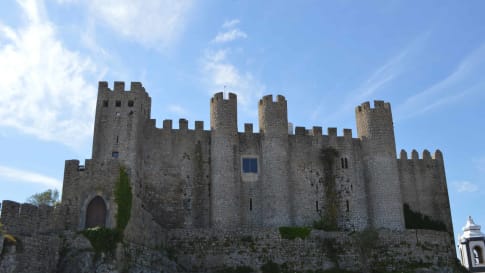
Óbidos, Portugal
A tiny, charming town with over 3000 inhabitants, Obidos is an hour from Lisbon and feels like stepping back in time. The medieval village's historic centre features picturesque cobbled streets and traditional white houses, surrounded by a crenellated castle wall which is accessible by foot. The entire scene is like something out of a story book, enhanced by the surrounding hilly landscape.
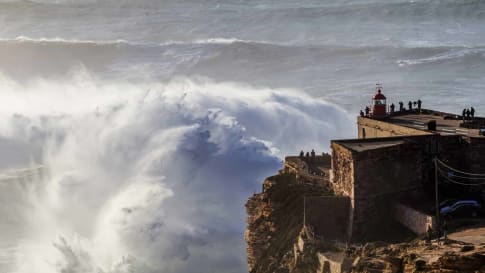
Nazare, Portugal
An ancient fishing village turned popular seaside resort, Nazare is only an hour and a half from Lisbon but it feels worlds away from the hustle and bustle of the city. The town became world-famous almost a decade ago when Garrett McNamara, a 51-year-old from Hawaii surfed a 78-foot wave (23 metres) at one of the town's beaches, breaking the world record for the biggest wave ever surfed. The event put Nazare on the map and surfers flocked to the picturesque coastal village desperate to catch the giant waves that many locals have spent years avoiding. For travellers, it is a great spot to relax and eat fresh fish while taking in the beautiful scenery and watching surfers do their bit.
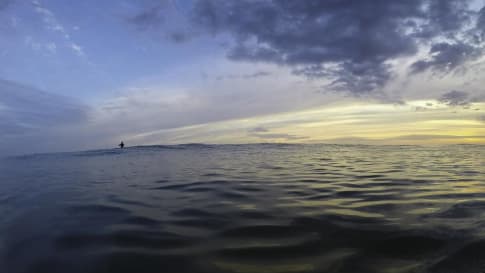
Atlantic Ocean and How it Shaped Ancient Communities In Europe
Article of interest for senior couples and mature solo travellers joining a small group European tour to Faroe Islands, Scottish Isles, Morocco or Portugal. Focus is on the early exploration of the Atlantic.

Convent of Christ, Tomar, Portugal
The Convent of Christ (Convento de Cristo) in Tomar, Portugal is a former Roman Catholic convent that is now a UNESCO World Heritage Site. In the 12th century, it was originally the Convent of the Knights Templar of Tomar.
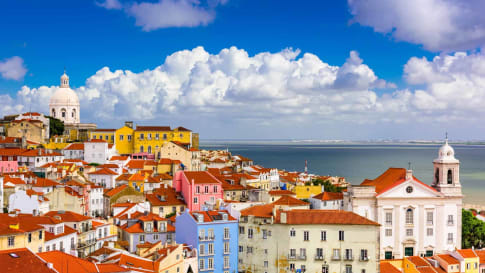
Alfama, Portugal
Alfama is Lisbon’s oldest extant neighbourhood, built in the 8th century during the Muslim conquest of Portugal and neighbouring Spain.
Touring Portugal
The need to know
Getting around
When traveling with Odyssey, we prioritize coach transportation while occasionally incorporating local options such as trains and ferries as detailed in the tour itinerary. In Portugal, a country of manageable size, air travel between cities is often unnecessary due to the well-connected bus and train network, known for its affordability ranking among the lowest in Europe. The Alfa Pendular, a high-speed train, efficiently links the north and south, serving all the major tourist destinations. Furthermore, navigating Portugal independently is convenient with its well-kept toll roads, facilitating a seamless and enjoyable driving experience.
Accommodation
In urban hubs, Odyssey accommodations are typically well-placed 3-4 star hotels, offering convenient access to public transportation. Meanwhile, in more remote or rustic settings, our preference leans towards charming family-operated hotels or cosy guesthouses. For extended stays, where the duration of the tour is spent in one place, we opt for serviced apartments for a comfortable and homely experience.
Tour Guides
Odyssey consistently partners with local guides who possess extensive regional expertise, guaranteeing an authentic and immersive experience. This approach enables travellers to delve deeply into the rich history and cultural tapestry of the destinations they explore.
Geography, environment & weather
Portugal, located on the Atlantic coast of the Iberian Peninsula, is bisected by the Tagus River, originating in Spain, flowing across the nation, and meeting the Atlantic at Lisbon. The northern region boasts mountainous terrain while the southern part is defined by gentle, rolling hills.
With a Mediterranean climate, Portugal stands as one of Europe’s warmest nations, with certain areas maintaining an average temperature of up to 28 degrees throughout the year. Despite this warmth, some mountainous areas experience frequent snowfall. The island territories of Portugal, including the Azores and Madeira, feature subtropical climates.
World Heritage sites
Portugal, despite its size, stands out with a remarkable total of 15 UNESCO World Heritage Sites. Each of these sites offers a unique window into the rich history and cultural tapestry of the country. While exploring all of them would be ideal, a few standout highlights include the vibrant medieval castles of Sintra, the impressive Jerónimos Monastery, the iconic Tower of Belém in Lisbon, and the enchanting Alto Douro Wine Region. Each of these sites encapsulates a piece of Portugal’s heritage and is well worth experiencing firsthand. For further details and the complete list of UNESCO World Heritage Sites in Portugal, refer to the official UNESCO website.
Festivals & events
If you’ve ever heard of Carnaval, you might associate it with colorful, scantily clad Brazilians reveling in the streets. However, this lively festival actually has its roots in Portugal.
The most prominent celebration occurs in Lisbon’s Parques Nacoes, where the streets come alive with vibrant street parades, elaborate masks and costumes, floats, and captivating theatrical performances. In Braga, the focal point of Portugal’s Holy Week processions, the streets are adorned with religious symbols, flowers, and illuminating lights, creating a solemn yet captivating atmosphere.
Venturing to the UNESCO World Heritage town of Sintra unveils a unique festival featuring ballet dancers, skilled pianists, and talented chamber musicians, adding a touch of elegance to the cultural festivities. For a distinctive experience, the Cascais Festival of the Sea offers a spectacle where young fishermen vie to dazzle female spectators by bravely facing charging bulls. With such diverse celebrations to choose from, there’s something to cater to every preference.
Reading list
- The Fat Man and Infinity by Lobo Antunes
- Distant Music by Lee Langley
- The Portuguese: The Land and Its People by Marion A Kaplan
- Portugal: A Companion History by Jose H Saraiva
Eating & Drinking
Portugal, being a coastal nation, boasts a rich culinary tradition centred around seafood. A notable staple is salt cod, though its flavour may not appeal to all palates. Despite this, daring food enthusiasts are encouraged to try it. Furthermore, peri-peri spice plays a significant role in flavouring chicken and shrimp, standing out as one of Portugal’s invaluable contributions to hangover cuisine. Beyond these, the country offers a plethora of other spiced dishes that demand exploration. When it comes to dining experiences, Portugal beckons visitors to meander through its streets, allowing curiosity to guide their culinary journey. This organic approach not only veers off the beaten tourist path but also unveils the authentic flavours of local cuisine, making it a delightful way to savour Portugal’s gastronomic delights.
Health & safety
When exploring Portugal, although generally considered safe, it is crucial to remain vigilant for any unexpected occurrences. In tourist-dense areas, you may frequently encounter alerts about pickpocketing activities; therefore, it is vital to maintain constant vigilance over your possessions to prevent any potential mishaps.
Electrical supply
When traveling abroad, it is crucial to bring along a suitable travel adaptor to ensure you can safely use your electronic devices. In Portugal, the electricity operates at 230V and 50Hz, and the plugs typically feature two circular pins, which are similar to those used in many other European countries.
The best of Portugal
Highlights
Evora
Evora is one of Portugal’s most beautifully preserved medieval towns, featuring Roman ruins and plenty of Alentejan restaurants
Read MoreFAQs
What is the time zone for Portugal?
Portugal operates on a single time zone, Western European Time, except for its overseas territories like the Azores. The country follows daylight saving time from the final Sunday in March to the final Sunday in October.
Is English widely spoken in Portugal?
While Portuguese is the official language spoken by 96% of the population in Portugal, it is worth noting its widespread presence beyond the country’s borders. Portuguese serves as the sole official language in Brazil, Cape Verde, Guinea-Bissau, Mozambique, Angola, and São Tomé and Príncipe. Additionally, Portuguese speakers are also prevalent in regions of India, East Timor, Equatorial Guinea, and Macau.
Is tipping customary in Portugal?
When journeying with Odyssey on a tour, tipping is seamlessly handled for you. Yet, during your leisure moments or when traveling solo, it is crucial to ensure you tip appropriately for services, mirroring customs across a significant portion of Europe. Typically, gratuities range between 10-15% of the total at restaurants, while at more informal venues, offering 1 to 3 euros is customary. Moreover, rounding up the bill to the nearest whole amount or leaving the change when purchasing beverages is considered polite and appreciated.
What is Portugal's currency?
Portugal adopted the Euro (EUR) in January 1999, replacing the former currency, the Portuguese escudo, which ceased circulation in 2002. The name ‘escudo’ derives from the Portuguese word for ‘shield.’ For travelers visiting Portugal, here are some approximate costs as of 2019:
- 1 litre milk: 0.60 EUR
- 1 cappuccino: 1.30 EUR
- Eating in restaurant for two: 20 EUR
- Cinema ticket: 7 EUR
External articles to assist you on your visit to Portugal.
- How to get from Lisbon to Sintra (Lisbon Guru)
- How much does it cost to go to Portugal? (Money We Have)
- The 15 Best Day Trips from Lisbon (The Crazy Tourist)
- 9 Awesome Stops for Your Road Trip from Lisbon to Porto (My Path in the World)
- Visit Portugal
Updated August 2021.
Responsible travel tips for Portugal.
- To enhance your experience in Portugal, familiarize yourself with local greetings to establish a connection with the locals. While English is widely spoken, knowing some phrases in the native language can enrich your stay.
- For added security, keep a business card from your hotel in your wallet or purse. This can be invaluable if you find yourself lost and need assistance finding your way back.
- Travel insurance is essential for your peace of mind. If you require guidance on selecting the right coverage, don’t hesitate to reach out to Odyssey for expert advice and support.
- When venturing out independently, be sure to check the operating hours of shops and museums to avoid missing out on key experiences. Note that many museums and galleries are closed on Mondays, and be mindful of any public holidays that may affect your itinerary.
- To prevent any financial hiccups while abroad, notify your bank of your travel plans to avoid unexpected account flags. Verify which ATMs and banks are compatible with your cards to minimize transaction fees and ensure smooth access to cash.
- Before your departure, ensure you have a variety of euros in different denominations. While carrying large sums is unnecessary, having adequate cash on hand simplifies payments at establishments that may not accept credit cards. This practice also facilitates tipping and helps you avoid extra card charges.
